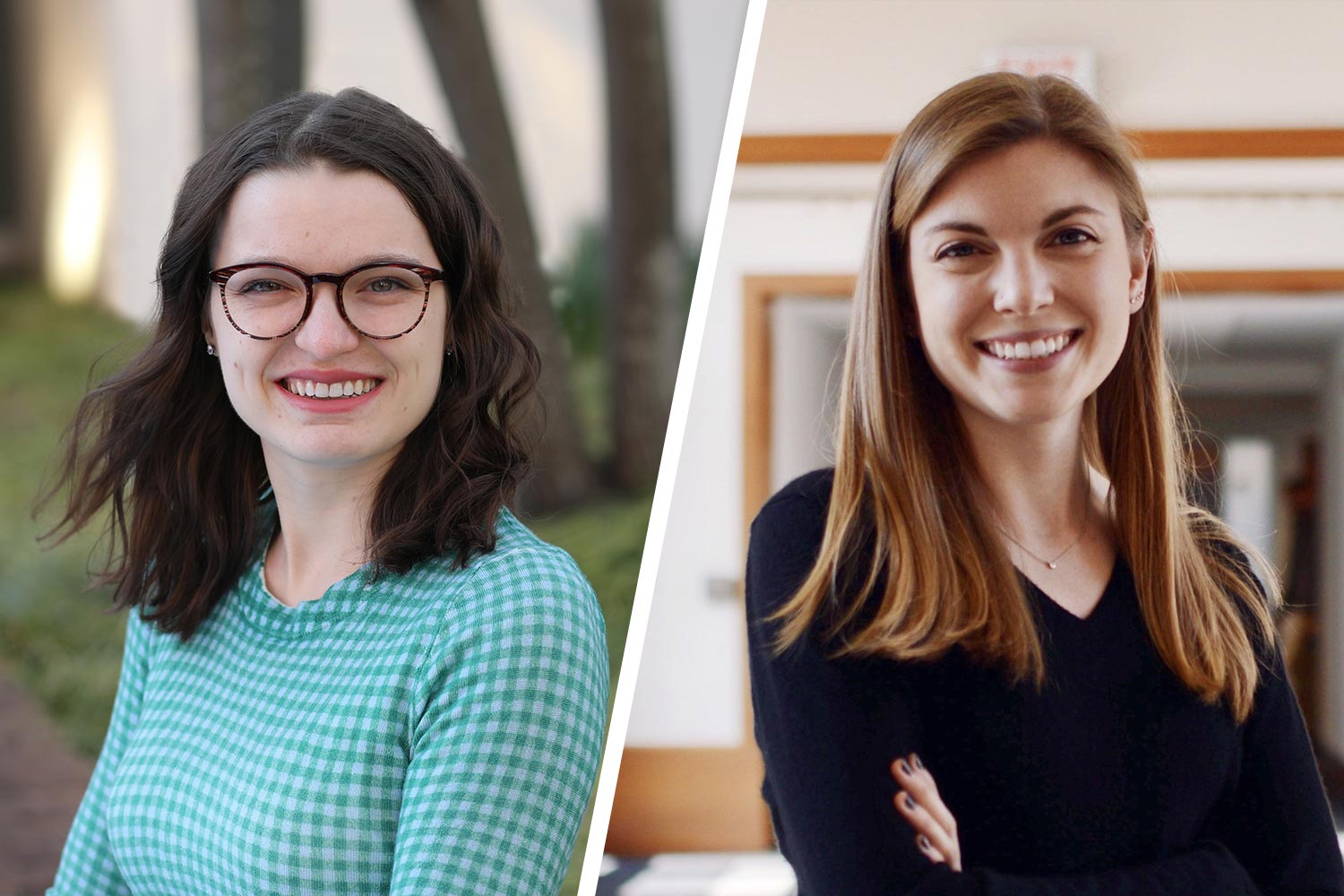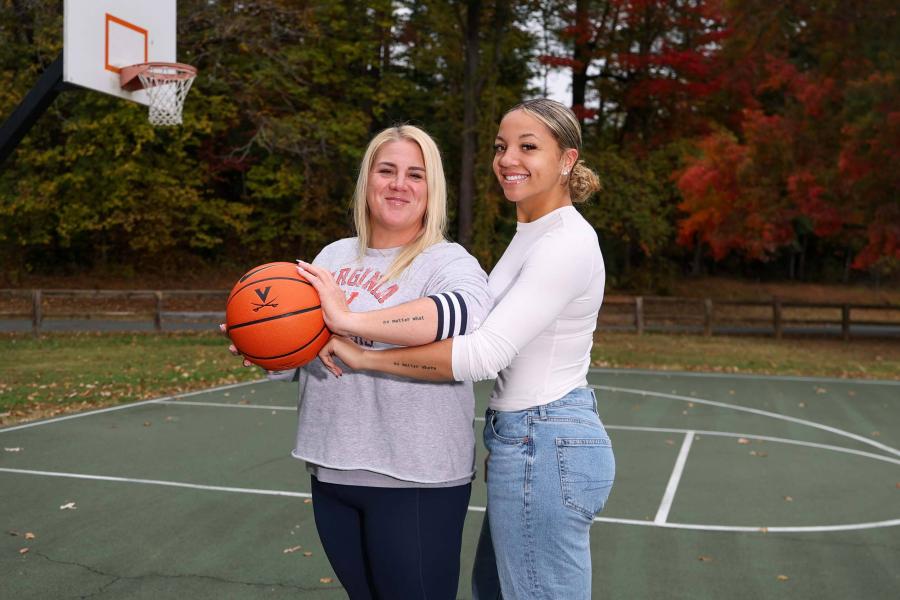A University of Virginia School of Law student using American Sign Language and her classmate successfully argued on behalf of a client before a Richmond-based federal appeals court.
Appellate Litigation Clinic third-year law students Jehanne McCullough, who is Deaf, and Nina Oat presented oral argument virtually with interpreter Kate O’Regan before the U.S. Court of Appeals for the Fourth Circuit on Sept. 9. The court ruled in favor of their client Jan. 4.
But in simply making her arguments the way she did, McCullough might have set a new milestone.
“To the best of my knowledge, we have previously had arguing counsel who have used sign language or closed captioning to hear what is being said, but we have not previously had argument presented through a translator,” said Fourth Circuit Clerk Pat Connor, herself a 1981 graduate of UVA Law. “I observed the argument, and it was quite impressive!”
To help prepare O’Regan, McCullough had her interpret during all moot courts and related meetings to familiarize her with the case. McCullough also typed up possible questions and answers in advance and videotaped herself for O’Regan.
“American Sign Language and English are completely different languages,” McCullough said. “Translating from ASL into English is an art, a complex process requiring conveying concepts and meaning, not simply voicing words for each sign. It is possible for translations of the same sentence to end up subtly different from each other.”
O’Regan said McCullough’s efforts helped her work on pacing, pronunciation of relevant legalese, names of precedent cases and being comfortable speaking the arguments in a persuasive way as her student intended. O’Regan added that fellow interpreters Jen Diggans and Rene DeVito were part of her “dream team.”










